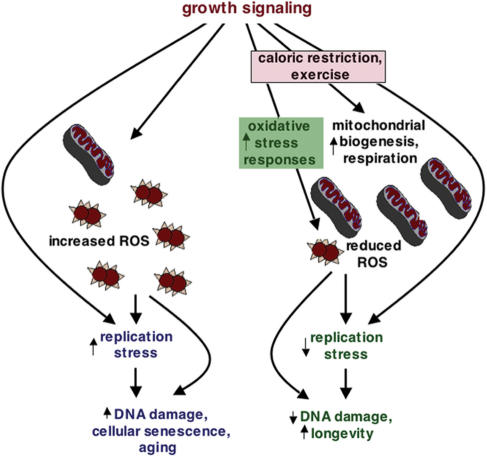Figure 3.
Replication stress model of aging. Growth signaling inhibits mitochondrial biogenesis and respiration and increases ROS, leading to replication stress, genome instability, cellular senescence and aging. Replication stress is likely enhanced by ROS-dependent growth signaling and by growth signaling that occurs independently of ROS. Caloric restriction and mutational inactivation of growth-signaling pathways stimulate mitochondrial biogenesis, increase respiration and reduce ROS. Reduced ROS-dependent and -independent growth signaling reduces replication stress and genome instability and promotes life span. In mammals, exercise also extends life span extension and promotes mitochondrial biogenesis and increased respiration (77,89). The effects of replication stress on aging likely occur in parallel with oxidative damage to DNA and other cellular constituents.

